Find Help
More Items From Ergsy search
-
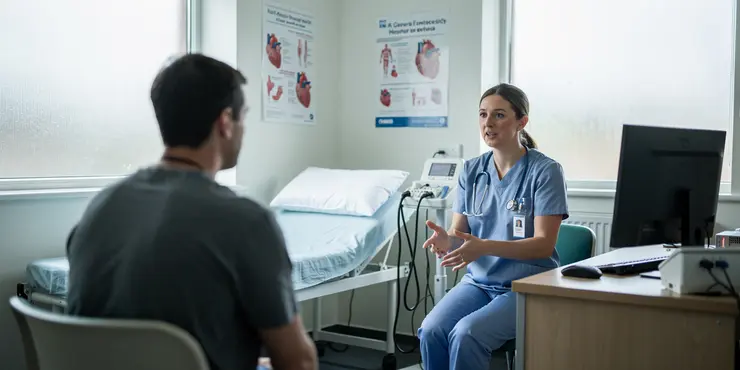
Are heart attack symptoms different for people with diabetes?
Relevance: 100%
-
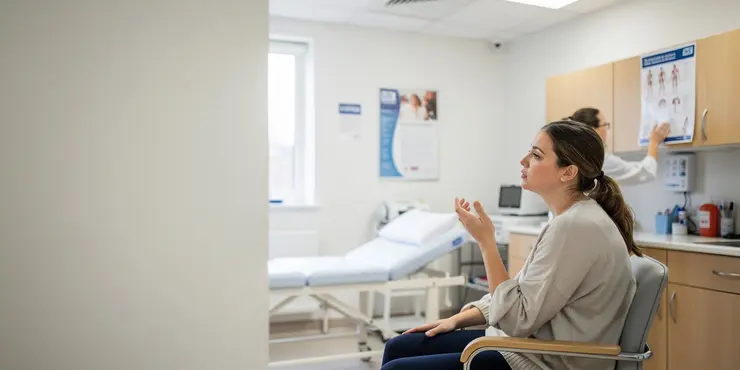
Can heart attack symptoms vary by age?
Relevance: 100%
-
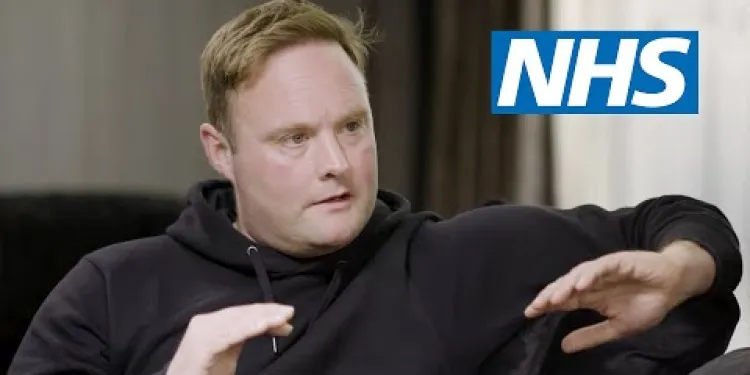
Heart Attack Symptoms - Peter Dale (Tubes) | NHS
Relevance: 96%
-
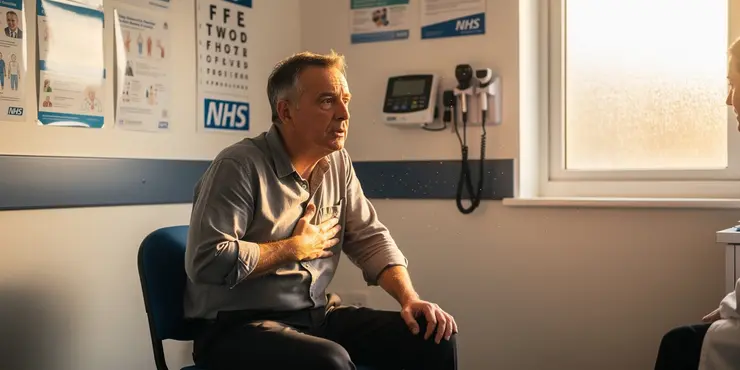
How long do heart attack symptoms usually continue?
Relevance: 94%
-
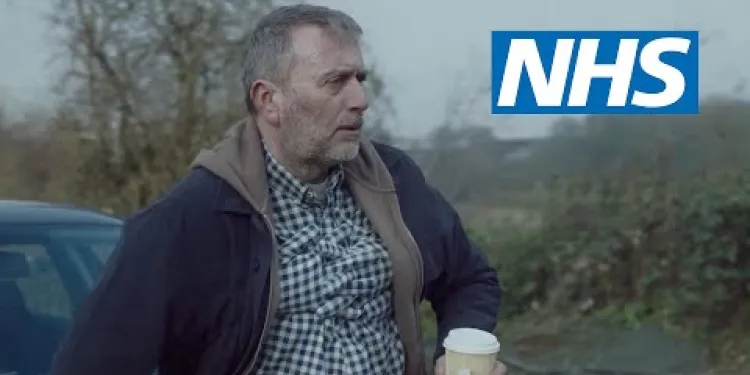
Heart Attack Symptoms - Help Us Help You | NHS
Relevance: 93%
-
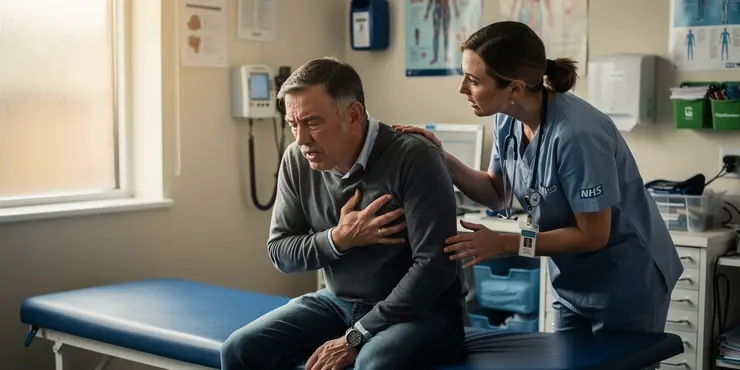
What should I do if I'm experiencing heart attack symptoms?
Relevance: 92%
-
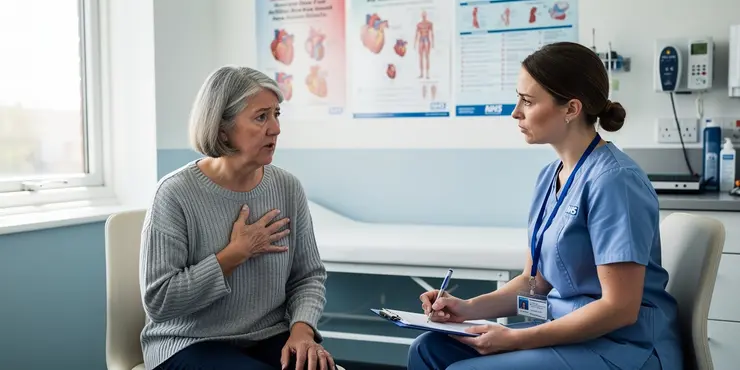
Can women have different heart attack symptoms than men?
Relevance: 91%
-
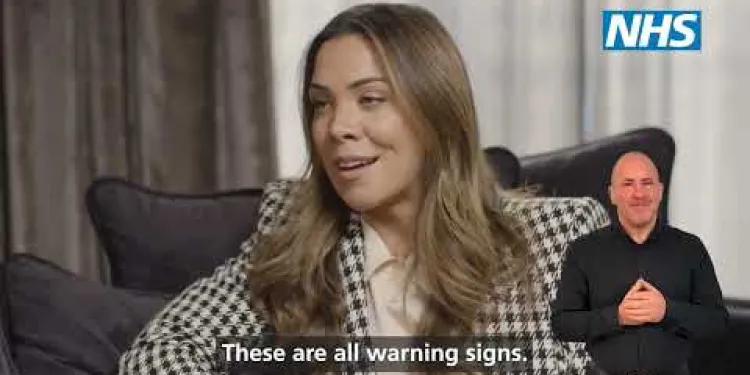
Heart Attack Symptoms - Peter Dale (Tubes) | NHS - BSL version
Relevance: 91%
-
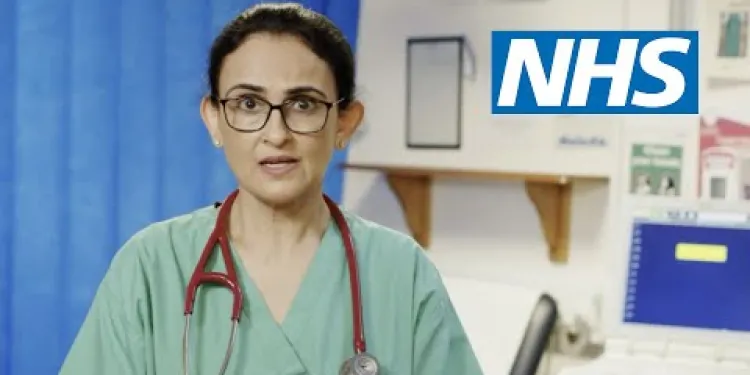
Heart Attack Stories | NHS
Relevance: 90%
-
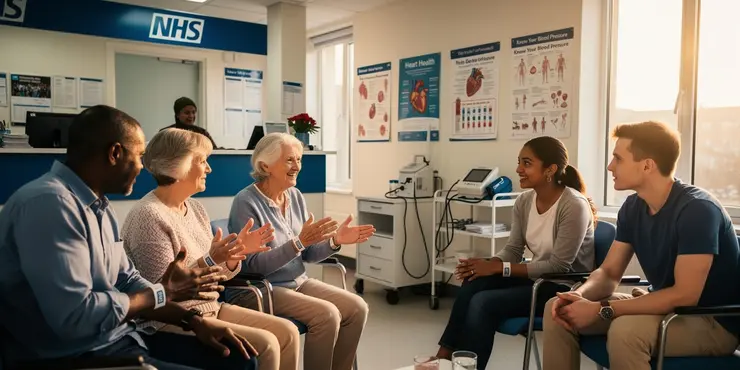
Heart Attack Stories | NHS
Relevance: 89%
-
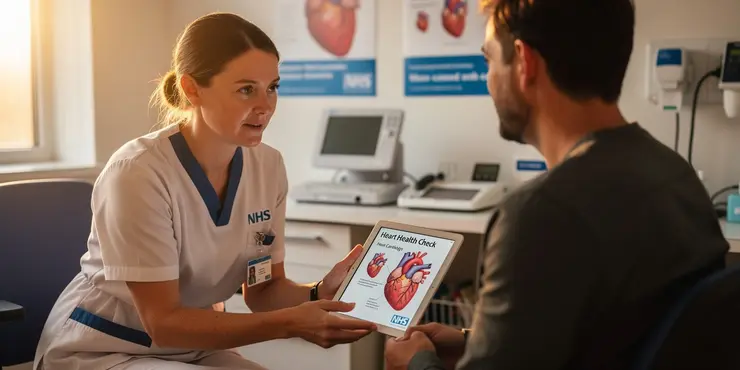
Is it possible to prevent a heart attack?
Relevance: 83%
-
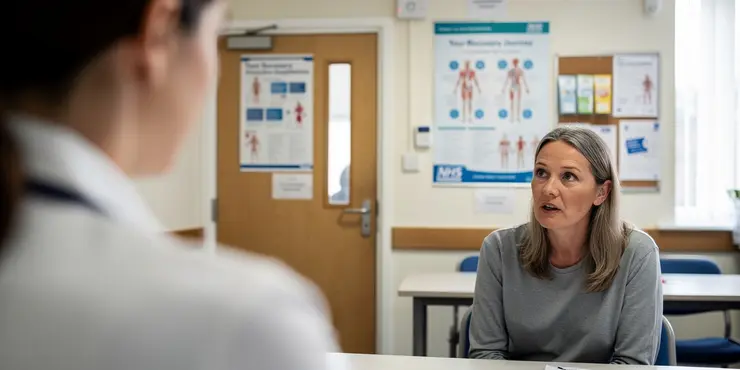
What are the long-term effects of a heart attack?
Relevance: 83%
-
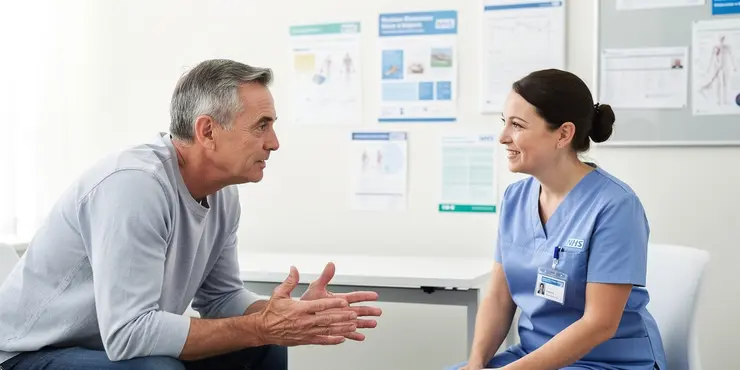
Is it possible to have a heart attack without chest pain?
Relevance: 82%
-
How can I differentiate between heartburn and a heart attack?
Relevance: 81%
-
What are the risk factors for a heart attack?
Relevance: 80%
-
Can physical exertion trigger a heart attack?
Relevance: 77%
-
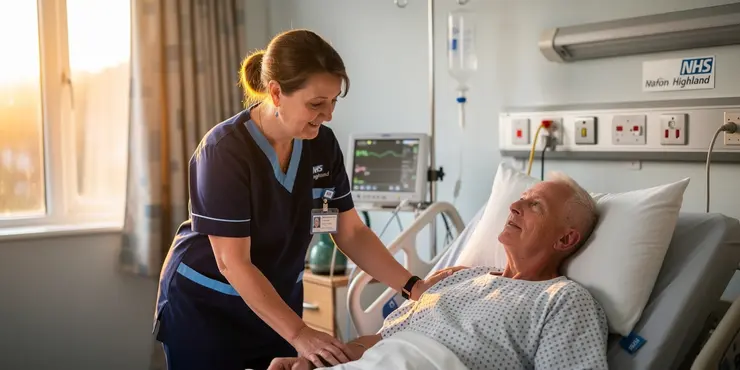
Heart attack care - Raigmore Hospital Inverness, NHS Highland
Relevance: 75%
-
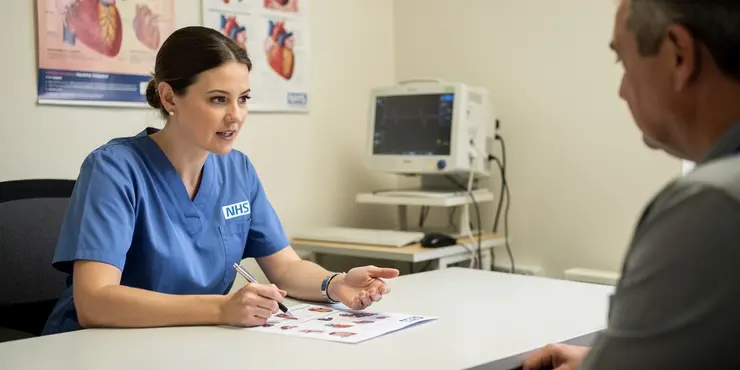
How do beta-blockers contribute to heart attack prevention?
Relevance: 73%
-
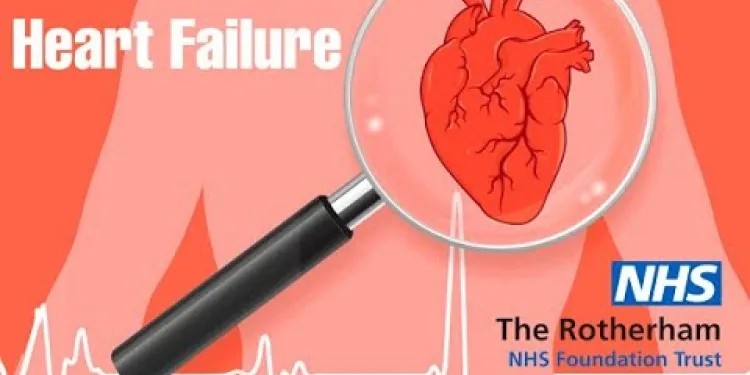
Heart Failure : Symptoms of heart failure
Relevance: 72%
-
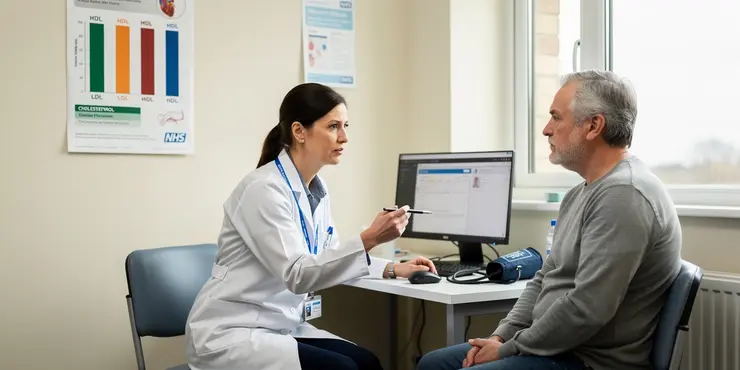
What drugs are commonly prescribed to reduce the risk of heart attacks?
Relevance: 72%
-
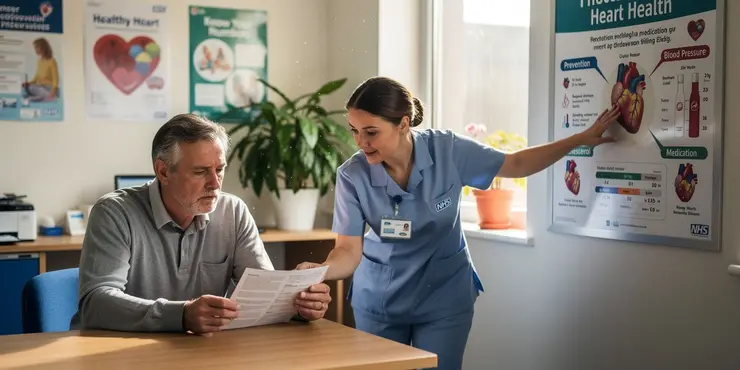
When should one start taking medication for heart attack prevention?
Relevance: 71%
-

What is the role of lifestyle modification in heart attack and stroke prevention?
Relevance: 70%
-
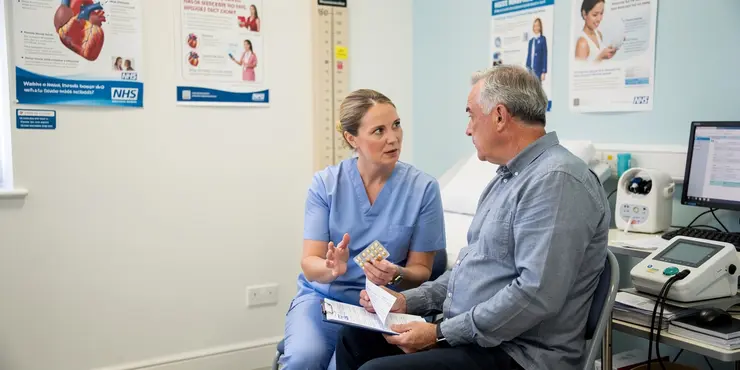
Do calcium channel blockers help in preventing heart attacks?
Relevance: 69%
-
Do over-the-counter medications help in preventing heart attacks and strokes?
Relevance: 69%
-
What is the role of PCSK9 inhibitors in heart attack prevention?
Relevance: 68%
-
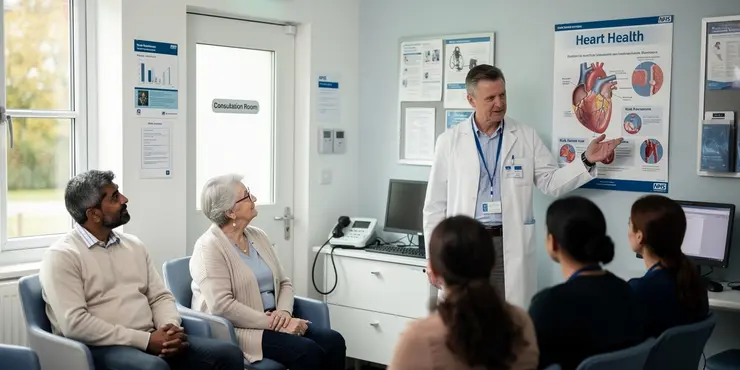
Do all patients need medication to prevent heart attacks and strokes?
Relevance: 67%
-
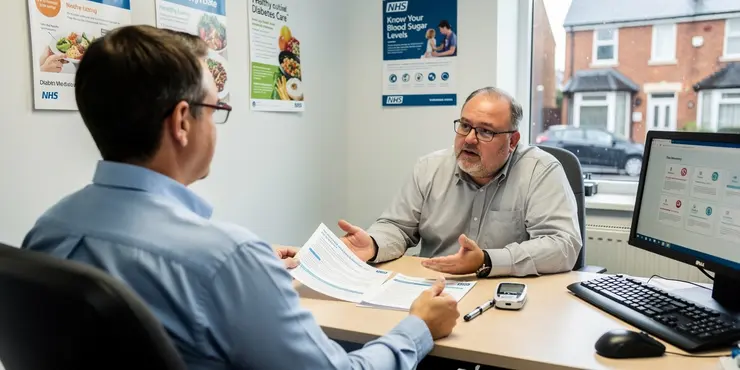
Can diabetes medications also help reduce heart attack risk?
Relevance: 66%
-

Heart Failure : When the heart becomes stiff?
Relevance: 59%
-

Heart Failure : The normal heart
Relevance: 57%
-
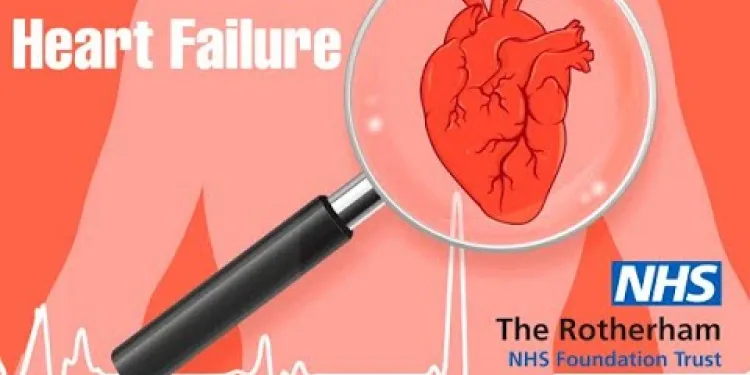
Heart Failure : Heart failure that cannot pump
Relevance: 56%
-
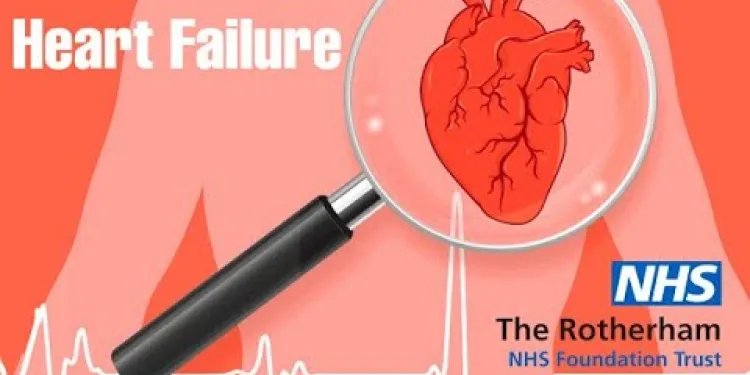
Heart Failure : What is heart failure?
Relevance: 56%
-
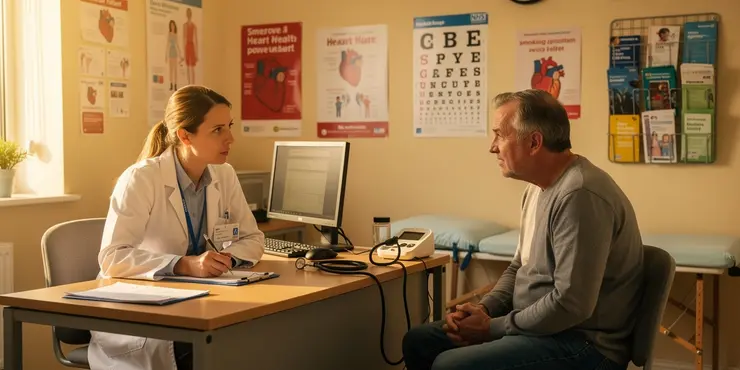
What should I do if I experience symptoms of heart failure?
Relevance: 56%
-

BSL - How to deal with panic attacks
Relevance: 55%
-

What are the most common symptoms of a heart attack?
Relevance: 55%
-
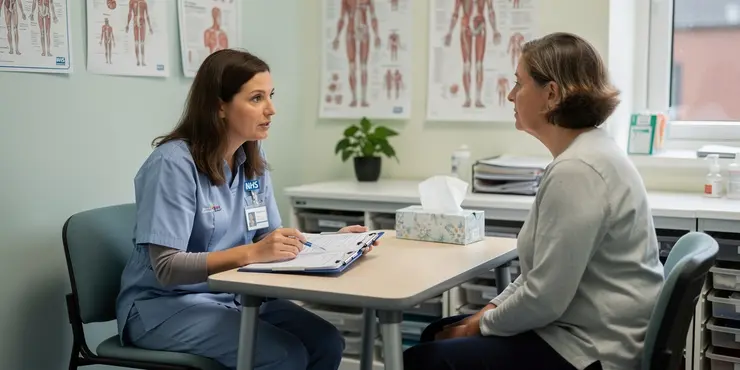
Can anxiety cause heart attack-like symptoms?
Relevance: 55%
-
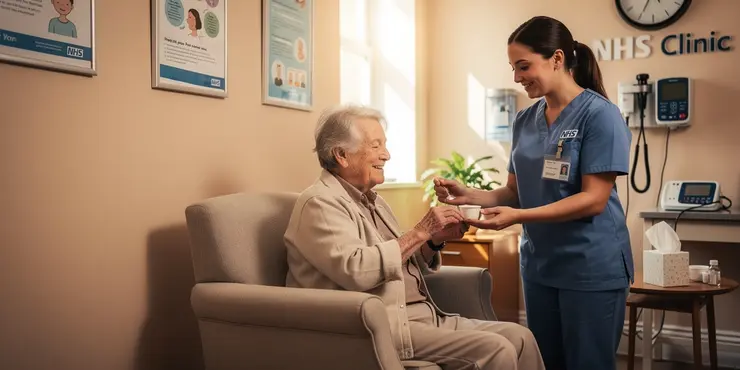
Medicines of the heart
Relevance: 55%
-
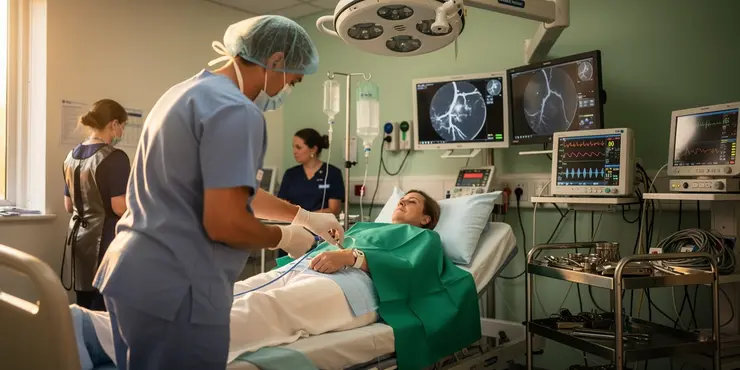
Heart stents
Relevance: 54%
-
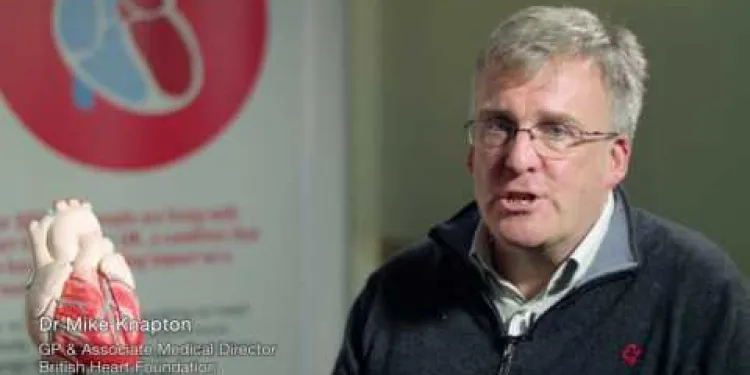
Heart failure introduction
Relevance: 53%
-
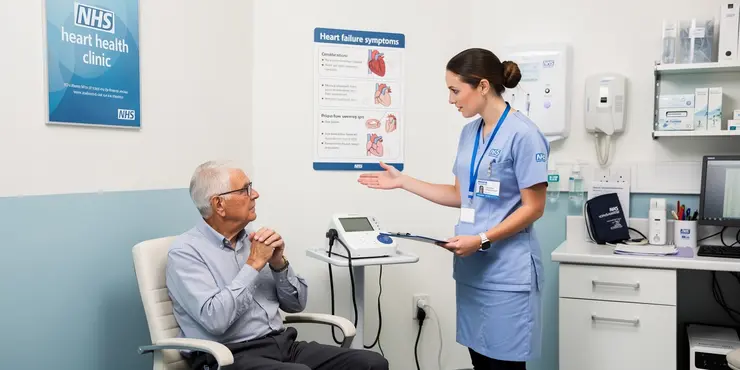
How is heart failure diagnosed?
Relevance: 51%
-
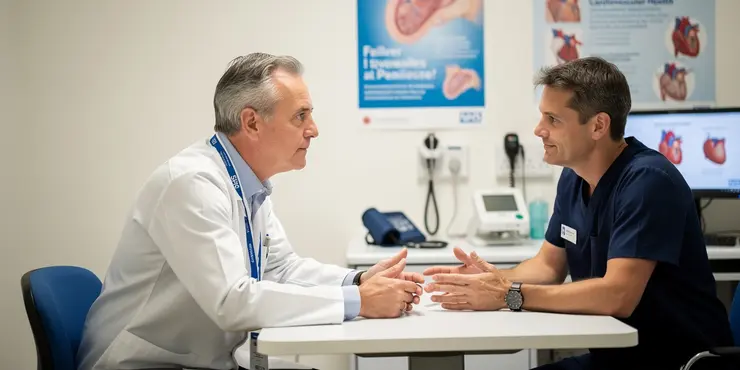
Are there different types of heart failure?
Relevance: 51%
Heart Attack Symptoms - Peter Dale (Tubes) | NHS
Introduction to Heart Attack Symptoms
Recognizing the symptoms of a heart attack can be lifesaving. A heart attack, known medically as a myocardial infarction, occurs when the supply of blood to the heart is blocked, usually by a blood clot. It's crucial to identify the signs early and seek immediate medical attention, particularly in the United Kingdom where advanced treatments and services are readily available through the NHS.
Common Symptoms of a Heart Attack
Heart attack symptoms can vary, but some are widely experienced. The most frequent symptom is chest pain or discomfort that feels like pressure, squeezing, fullness, or pain that lasts more than a few minutes, or goes away and comes back. This pain can spread to the arms, neck, jaw, or back. Other common symptoms include shortness of breath, which can occur with or without chest discomfort.
Other Symptoms to Watch For
Besides chest pain and shortness of breath, there are other symptoms to be aware of. These include nausea, vomiting, lightheadedness, or fainting. Some individuals, particularly women, the elderly, and diabetics, may experience unusual or less pronounced symptoms such as unexplained fatigue, sweating, or a cold sweat. Recognising these subtler signs is essential for timely intervention.
Peter Dale (Tubes) Testimonial
Peter Dale, popularly known as "Tubes," a notable figure in the UK for his work on Soccer AM and other television appearances, has shared his personal experience with heart attacks to raise awareness. Tubes emphasizes the importance of recognising symptoms early and not delaying a call to emergency services. His candid sharing of his ordeal highlights the critical nature of taking symptoms seriously to improve outcomes.
Taking Action
If you or someone you know is exhibiting signs of a heart attack, act quickly. Call 999 immediately for emergency assistance. Early treatment can significantly reduce the damage to the heart muscle and increase the chances of survival. The NHS provides excellent resources and care for heart attack patients, making timely medical intervention readily accessible.
Heart Attack Symptoms - Peter Dale (Tubes) | NHS
What is a Heart Attack?
A heart attack happens when blood can't get to the heart because of a blockage. This can be very serious. Knowing the signs early can save a life. In the UK, the NHS can help people who have a heart attack.
Signs of a Heart Attack
The main sign of a heart attack is chest pain. It can feel like someone is squeezing your chest. The pain might move to your arms, neck, jaw, or back. You might also feel short of breath. Sometimes, the chest pain goes away and returns.
Other Signs to Look For
Other signs of a heart attack include feeling sick, throwing up, feeling dizzy, or fainting. Some people might feel very tired or sweaty. These signs can be harder to notice in women, older people, and people with diabetes. It's important to pay attention to these signs too.
Peter Dale's Story
Peter Dale, also called "Tubes," is famous in the UK for being on TV. He talked about his heart attack to help others understand the signs. He says it's important to call for help right away if you think you are having a heart attack.
What to Do
If you think someone is having a heart attack, call 999 right away. They need help fast to stop damage to the heart. The NHS will provide good care for heart attacks. Getting help quickly can save a life.
Frequently Asked Questions
What are the most common symptoms of a heart attack?
Common symptoms include chest pain, shortness of breath, feeling weak or lightheaded, and pain that may spread to the arms, neck, jaw, or back.
Can heart attack symptoms vary between men and women?
Yes, women may experience symptoms such as nausea, vomiting, fatigue, and back or jaw pain in addition to or instead of chest pain.
Is chest pain always a sign of a heart attack?
Not always. Chest pain can be caused by many conditions, but it’s important to seek medical attention if the pain is severe, persistent, or accompanied by other heart attack symptoms.
What should I do if I think I'm having a heart attack?
Call 999 immediately and ask for an ambulance. While waiting, chew on an aspirin if you are not allergic and follow any advice given by the emergency operator.
How can I differentiate heartburn from a heart attack?
Heartburn is usually a burning sensation behind the breastbone, while a heart attack typically involves intense, crushing chest pain. If in doubt, seek medical help.
Are there any silent symptoms of a heart attack?
Yes, some heart attacks have minimal or no symptoms, particularly in people with diabetes. Silent heart attacks can cause mild discomfort, shortness of breath, or unusual fatigue.
Can younger people have heart attacks?
Yes, while age is a risk factor, heart attacks can occur in younger individuals, especially if they have other risk factors such as smoking, high blood pressure, or a family history of heart disease.
Is it possible to have a heart attack without chest pain?
Yes, this is more common in women, the elderly, and people with diabetes. Symptoms may include shortness of breath, nausea, lightheadedness, or pain in areas such as the back or jaw.
What does heart attack-induced chest pain feel like?
It often feels like pressure, squeezing, fullness, or a heavy weight on the chest. The pain may also radiate to other parts of the body.
Can stress trigger a heart attack?
High levels of stress can increase the risk of heart attack. Managing stress through relaxation techniques, exercise, and a healthy lifestyle can reduce this risk.
What lifestyle changes can reduce the risk of heart attacks?
Adopting a healthy diet, regular physical activity, not smoking, moderating alcohol intake, managing stress, and maintaining a healthy weight can all help reduce the risk of heart attacks.
Are heart attack symptoms different at night?
Heart attacks can happen at any time, but symptoms might seem more intense at night due to the body’s inactivity and the absence of distractions.
What are less common signs of a heart attack?
Less common symptoms include unexplained fatigue, sweating, nausea or vomiting, and fainting. Pay attention to these especially if you have risk factors for heart disease.
How does a heart attack feel different from anxiety?
While both can cause chest pain, a heart attack typically causes intense, crushing pain, often with other symptoms like shortness of breath or spreading pain, whereas anxiety-induced chest pain is often sharper and localized.
Can heart attack symptoms come and go?
Yes, symptoms may come and go, especially in the early stages. It’s crucial to seek medical attention even if symptoms temporarily subside.
What happens when someone has a heart attack?
Here are some signs of a heart attack:
- Chest pain or feeling really tight in the chest.
- Pain in arms, back, neck, or jaw.
- Feeling out of breath.
- Feeling sick, like you might throw up.
- Feeling light-headed or dizzy.
- Feeling very sweaty.
If someone has these signs, they need help fast. Call for help right away.
Use a simple tool to remember: "STOP and CALL for help."
Some common signs are:
- Chest hurts
- It is hard to breathe
- Feeling very tired or dizzy
- Pain that moves to the arms, neck, jaw, or back
Using pictures or talking with someone can help understand these signs better.
Do men and women have different signs of a heart attack?
Yes, women can feel signs like feeling sick, throwing up, feeling very tired, or having pain in their back or jaw. They might not feel pain in their chest.
Does chest pain mean you are having a heart attack?
Chest pain can be scary. But it does not always mean a heart attack. Other things can cause chest pain too, like heartburn or stress.
If you or someone else has chest pain, it is important to talk to a doctor to find out what is wrong.
Using diagrams or talking to a trusted person can help you understand more.
Chest pain is not always the same.
Many things can cause chest pain.
If your chest hurts a lot, or if it doesn't go away, see a doctor.
If you have other signs of a heart attack with chest pain, get help right away.
What to Do If You Think You Have a Heart Problem
If you feel a strong pain in your chest, you might have a heart problem.
Here's what to do:
- Stay calm and sit down.
- Call emergency services right away. In many places, this is 911.
- Tell someone near you that you need help.
- If you can, chew an aspirin. This can help your heart.
Use helpful tools:
- A phone to call for help quickly.
- Keep a list of emergency numbers handy.
- Learn how to use a phone's speaker option so you can talk without holding it.
It's important to get help fast if you think you have a heart problem.
Call 999 right away and ask for an ambulance. While you wait, if you are not allergic, chew an aspirin. Listen to what the emergency person tells you to do.
How can I tell the difference between heartburn and a heart attack?
Heartburn feels like a burning in the chest. It happens behind your breastbone. A heart attack feels very strong and hurts a lot. It feels like squeezing in your chest. If you are not sure, ask a doctor for help.
Can you have a heart attack without feeling it?
Yes, sometimes a heart attack can happen without big warning signs. This is called a "silent" heart attack. You might not feel it, but it can still be very serious.
Here are some signs to watch for:
- Feeling very tired for no reason
- Pain or feeling of pressure in your chest
- Feeling dizzy or light-headed
- Feeling sick to your stomach
- Breaking out in a cold sweat
If you notice any of these signs, tell someone. Go to a doctor right away.
It helps to talk to someone about what you feel. You can also draw or write your feelings. This can help you explain them better.
Yes, sometimes people have a heart attack without many signs. This happens more in people with diabetes. These heart attacks are called silent heart attacks. They may feel a little bit of pain, have trouble breathing, or feel very tired for no reason.
Can young people have heart attacks?
Yes, young people can have heart attacks. This is not very common, but it can happen.
Here are some ways to keep your heart healthy:
- Eat healthy food like fruits and vegetables.
- Exercise regularly, like walking or playing a sport.
- Do not smoke. Smoking is very bad for your heart.
- Visit the doctor for regular check-ups.
If you are worried about your heart, talk to a doctor or an adult you trust. They can help you understand what to do.
Yes, young people can have heart attacks too. Being older can increase the risk, but other things can also cause heart attacks. These things include smoking, high blood pressure, and having family members with heart disease.
Can you have a heart attack without your chest hurting?
Yes, sometimes people can have a heart attack without feeling chest pain. This can be called a "silent" heart attack.
Here are some things that might happen instead:
- Feeling very tired
- Feeling dizzy
- Breathing is hard
- Feeling sick to your stomach
- Neck, jaw, or arm may hurt
If you feel these things, or worry about your heart, tell a grown-up or see a doctor.
It can help to use:
- A picture chart to show how you feel
- A calm place to sit and rest
- A friend or family to talk to
Yes, this happens more often to women, older people, and people with a sickness called diabetes. People might feel like it's hard to breathe, feel sick in the tummy, feel dizzy, or have pain in their back or jaw.
What Does Heart Pain Feel Like?
When someone has a heart attack, their chest might hurt. But what does this pain feel like?
Many people say it feels like:
- A tight or heavy feeling in the chest.
- Something squeezing the chest really hard.
- Burning or feeling full in the chest.
It can be scary and uncomfortable.
If you feel this kind of pain, tell an adult or a doctor right away.
Here are some tools and tips to help:
- Ask a grown-up to explain if you don't understand.
- Look at pictures or videos about heart health.
- Use simple words when talking about heart problems.
It might feel like someone is pushing on your chest. It can also feel like something is very heavy sitting on it. The pain can spread to other parts of your body too.
Can stress cause a heart attack?
Feeling very worried or scared can sometimes hurt your heart. This can lead to a heart attack. A heart attack is when the heart stops working properly.
Here are some ways to help your heart:
- Talk to someone you trust about your worries.
- Breathe slowly and deeply when you feel stressed.
- Do things that make you happy and relaxed, like drawing or listening to music.
If you feel bad chest pain, get help from a doctor quickly.
Feeling stressed a lot can be bad for your heart. It can make you more likely to have a heart attack. To help your heart, try to relax, move your body with exercise, and live healthy. These can help you feel better and keep your heart safe.
How can you change your life to help make your heart healthy?
Here are some ways to keep your heart strong:
- Eat healthy food like fruits and vegetables.
- Exercise a little bit every day, like walking or playing.
- Stop smoking if you smoke.
- Try to stay calm and not stress too much.
- Get enough sleep every night.
You can ask a grown-up or a doctor for help if you have questions. Apps or videos can also help you learn more about keeping your heart strong!
To keep your heart healthy, try these tips:
- Eat healthy food.
- Exercise often.
- Do not smoke.
- Drink less alcohol.
- Stay calm and manage stress.
- Keep a healthy weight.
These steps can help stop heart attacks.
If reading is hard, try these tools:
- Use audiobooks to listen to stories.
- Watch videos with subtitles to see and hear words.
- Ask someone you trust for help with reading.
Do heart attack signs change at night?
Heart attack signs might feel different at night.
If you notice anything strange, tell someone. Use pictures or apps that help you understand what is happening. Talking with a doctor can also help you learn more.
Heart attacks can happen any time. But at night, the signs might feel stronger. This is because your body is resting and there are no distractions.
What are some less common signs of a heart attack?
When someone has a heart attack, it means their heart is in trouble. Some signs are easy to miss. Here are some signs to watch for:
- Feelings of being very tired or weak.
- Upset tummy or feeling sick.
- Feeling dizzy or light-headed.
- Pain in your neck, jaw, back, or stomach.
If you or someone else has these signs, it's important to get help from a doctor right away.
It's always good to talk to someone if you feel worried. You can also use pictures or drawings to help understand better.
Some other symptoms are feeling very tired without a reason, sweating a lot, feeling sick or throwing up, and passing out. Watch out for these signs, especially if you have things that make heart problems more likely.
How is a heart attack different from feeling very worried?
Both a heart attack and feeling very worried can make your chest hurt. A heart attack hurts a lot and feels like your chest is being squeezed hard. You might also find it hard to breathe, or the pain might spread to other places like your arm or back. When you're worried, the chest pain feels more like a sharp poke and stays in one spot.
Can Heart Attack Signs Start and Stop?
Can you feel heart attack signs that start and stop?
Heart attack signs can be:
- Strong chest pain
- Pain in arms, neck, or jaw
- Feeling very tired
- Out of breath
Sometimes, these signs can start and stop. They can come and go.
If you feel these signs, tell an adult you trust right away. You can also call 911 for help.
To learn more about heart attacks, you can:
- Talk to a doctor or nurse
- Read a simple health book
- Visit a health website with easy words
Yes, signs can appear and disappear, especially at the start. It is important to see a doctor even if you feel better for a while.
Useful Links
This website offers general information and is not a substitute for professional advice.
Always seek guidance from qualified professionals.
If you have any medical concerns or need urgent help, contact a healthcare professional or emergency services immediately.
Some of this content was generated with AI assistance. We’ve done our best to keep it accurate, helpful, and human-friendly.
- Ergsy carfully checks the information in the videos we provide here.
- Videos shown by Youtube after a video has completed, have NOT been reviewed by ERGSY.
- To view, click the arrow in centre of video.
- Most of the videos you find here will have subtitles and/or closed captions available.
- You may need to turn these on, and choose your preferred language.
- Go to the video you'd like to watch.
- If closed captions (CC) are available, settings will be visible on the bottom right of the video player.
- To turn on Captions, click settings .
- To turn off Captions, click settings again.
More Items From Ergsy search
-

Are heart attack symptoms different for people with diabetes?
Relevance: 100%
-

Can heart attack symptoms vary by age?
Relevance: 100%
-

Heart Attack Symptoms - Peter Dale (Tubes) | NHS
Relevance: 96%
-

How long do heart attack symptoms usually continue?
Relevance: 94%
-

Heart Attack Symptoms - Help Us Help You | NHS
Relevance: 93%
-

What should I do if I'm experiencing heart attack symptoms?
Relevance: 92%
-

Can women have different heart attack symptoms than men?
Relevance: 91%
-

Heart Attack Symptoms - Peter Dale (Tubes) | NHS - BSL version
Relevance: 91%
-

Heart Attack Stories | NHS
Relevance: 90%
-

Heart Attack Stories | NHS
Relevance: 89%
-

Is it possible to prevent a heart attack?
Relevance: 83%
-

What are the long-term effects of a heart attack?
Relevance: 83%
-

Is it possible to have a heart attack without chest pain?
Relevance: 82%
-
How can I differentiate between heartburn and a heart attack?
Relevance: 81%
-
What are the risk factors for a heart attack?
Relevance: 80%
-
Can physical exertion trigger a heart attack?
Relevance: 77%
-

Heart attack care - Raigmore Hospital Inverness, NHS Highland
Relevance: 75%
-

How do beta-blockers contribute to heart attack prevention?
Relevance: 73%
-

Heart Failure : Symptoms of heart failure
Relevance: 72%
-

What drugs are commonly prescribed to reduce the risk of heart attacks?
Relevance: 72%
-

When should one start taking medication for heart attack prevention?
Relevance: 71%
-

What is the role of lifestyle modification in heart attack and stroke prevention?
Relevance: 70%
-

Do calcium channel blockers help in preventing heart attacks?
Relevance: 69%
-
Do over-the-counter medications help in preventing heart attacks and strokes?
Relevance: 69%
-
What is the role of PCSK9 inhibitors in heart attack prevention?
Relevance: 68%
-

Do all patients need medication to prevent heart attacks and strokes?
Relevance: 67%
-

Can diabetes medications also help reduce heart attack risk?
Relevance: 66%
-

Heart Failure : When the heart becomes stiff?
Relevance: 59%
-

Heart Failure : The normal heart
Relevance: 57%
-

Heart Failure : Heart failure that cannot pump
Relevance: 56%
-

Heart Failure : What is heart failure?
Relevance: 56%
-

What should I do if I experience symptoms of heart failure?
Relevance: 56%
-

BSL - How to deal with panic attacks
Relevance: 55%
-

What are the most common symptoms of a heart attack?
Relevance: 55%
-

Can anxiety cause heart attack-like symptoms?
Relevance: 55%
-

Medicines of the heart
Relevance: 55%
-

Heart stents
Relevance: 54%
-

Heart failure introduction
Relevance: 53%
-

How is heart failure diagnosed?
Relevance: 51%
-

Are there different types of heart failure?
Relevance: 51%


